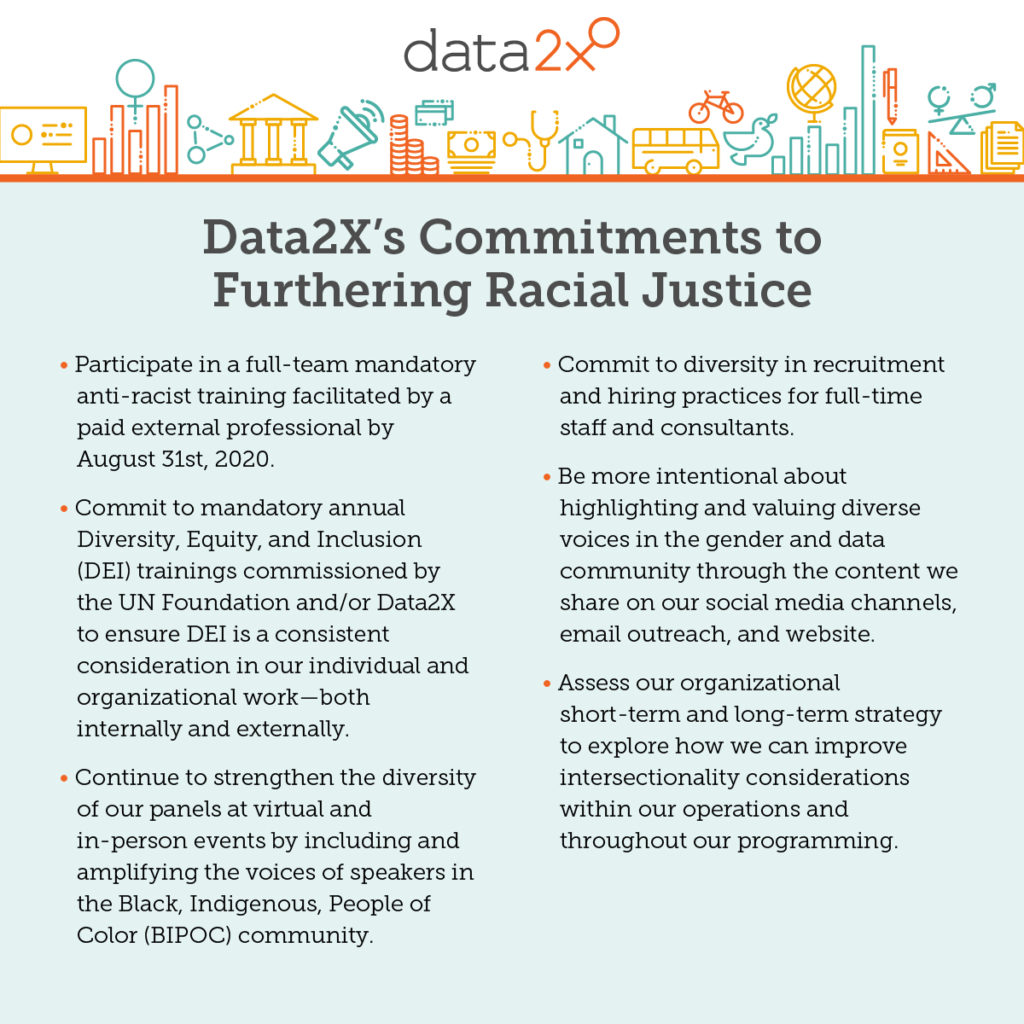It’s only June, but it feels like 2020 has lasted far longer than six months.
COVID-19 has spread across the globe, with 7.1 million confirmed cases and at least 408,000 deaths. In the U.S., we recently surpassed 2 million cases, with countless states seeing an uptick in cases amid the backdrop of conflicting leadership decisions and staggering gender and racial inequities that have left many vulnerable groups reeling from the primary and secondary effects of the pandemic.
At the same time, we are in an important moment in the U.S. — one that feels different than past moments — of national reckoning about the systemic anti-Black racism, white supremacy, and police brutality that led to the heartbreaking deaths of Breonna Taylor, Ahmaud Arbery, George Floyd, and thousands of others in the Black community.
This troubling environment — imbued with rightful attention on racial justice — is prompting necessary and urgent conversations around the world, and Data2X, alongside the United Nations Foundation, is heavily considering our role in this environment and the way in which our work can foster equality and justice.
Data2X sits at the intersection of the data and the gender spaces and frequently engages in conversations about the role that data systems play in informing policymaking and ensuring that women’s and girls’ experiences are recognized, validated, and addressed. Gender data is essential, but its power is limited by gender data gaps. These gaps are pervasive, and when the spotlight turns to women of color, these gaps only grow wider.
In these conversations, it is the job of the global community to ask ourselves hard questions about the way we consider the intersections of gender and data with inequities in race. Now, as we hold up a mirror to ourselves and others in the context of action on racial justice, we must continue to work on embedding an intersectional lens into our work.
This is something we are considering as we think through our short and long-term strategy at Data2X, while recognizing that our mission has been and will continue to be: improve the availability, quality, and use of gender data to make a practical difference in the lives of all women and girls worldwide.
We are aware that thoughts and aspirations are not enough right now. I am reminded of Blessing Omakwu’s insightful words in a recent piece for Devex, “So much of the work we do in the international development sector is about policies, but far too often, the internal policies of our organizations do not match the external policies we advocate for externally.” That’s why, as a team, we will be taking the following actions immediately and commit to doing the long-term work:

At Data2X, we believe that gender data is one of the most powerful tools we can use to ensure that voices are heard and respected and that the owners of those voices have their needs and desires met.
I invite you to join Data2X and others in the community as we collectively listen, learn, and take action to ensure that racial justice has a place in all of our work.
